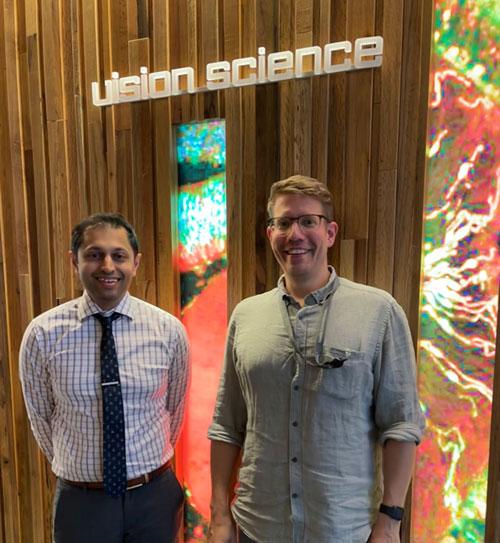
Research to study the genetic causes of inherited retinal diseases
Inherited retinal diseases (IRDs) affect one in 3,000 people, and almost one-third of cases will have inconclusive genetic testing, which limits therapeutic opportunities that may restore sight. The precise identification of genotypic causes of IRDs has taken on new importance as treatment is only indicated for specific genetic defects, especially with the emergence of retinal stem-cell-based therapies.
Tim Cherry, PhD, Associate Professor in the Department of Pediatrics and Adjunct Associate Professor of Ophthalmology, and Debarshi Mustafi, MD, PhD, Assistant Professor in the Department of Ophthalmology, were awarded a $150,000 Clinical & Research Synergy Pilot Award from Seattle Children’s Research Institute to determine the genetic causes of unsolved IRDs and address this important issue.
Dr. Mustafi is a pediatric retina specialist at Seattle Children’s Hospital and, in connection with the genetics department, has a focused clinic to help identify IRD patients to coordinate their phenotypic workup and genetic testing. Although a large percentage of patients received a causative diagnosis, many families were left with inconclusive results, especially when there were findings of variants of uncertain significance that would require further research into their possible pathogenicity.
To help provide further disease insight and develop gene-editing techniques to correct these changes in patient cells, Dr. Mustafi partnered with Dr. Cherry. The Cherry Lab investigates how the visual system develops and how genetic variations contribute to blindness and other visual disorders. Dr. Mustafi will lead the clinical portion of this project, whereas Dr. Cherry will lead the project's research component.
The investigators intend to enhance the IRDs using patient-derived retinal organoids. By investigating genetic causes, mechanistic features, and therapeutic targets, they will seek to address the challenges patients face with inconclusive genetic testing results. Leveraging clinical expertise and research capabilities, the collaborative effort of Drs. Cherry and Mustafi seek to unlock insights into IRDs and explore gene editing therapeutic strategies.
